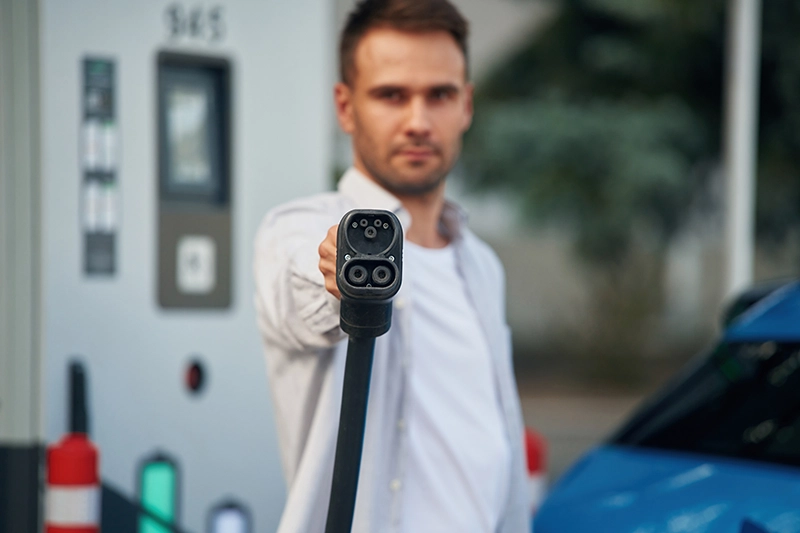With the UK pushing towards net zero and petrol and diesel car sales set to be phased out, more drivers are switching to electric vehicles (EVs). One of the most critical decisions for new EV owners is choosing the correct home charger.
The right unit can save you time, money, and hassle, while the wrong one might not suit your lifestyle or car. From speed and cost to innovative features and installation, this guide helps UK drivers make an informed choice.
Understand the Different Types of Chargers
Not all EV chargers are created equal—knowing the basics will help you choose the right one.
- 3-pin plug (granny charger): This plug is slow and only suitable for occasional use. It charges roughly 2.3kW and can take over 24 hours to fully charge an EV.
- Fast chargers (7kW to 22kW): Most home wall boxes are 7kW, offering a full charge in 6–10 hours, depending on the battery size.
- Rapid chargers (50kW+) are found in public spaces like service stations and are too powerful (and costly) for home use.
Most UK homes opt for a 7kW wall-mounted charger, which balances cost and charging speed without requiring a three-phase electrical supply.
Choose a Tethered or Untethered Unit
Next, decide how you want your charging cable to be set up.
- Tethered: It has a built-in cable—just plug it in and charge it. This is ideal for convenience and speed.
- Untethered (socketed): This option requires using your charging cable. It offers a tidier look and is better if you have different EVs with different plug types.
Tethered units are often more user-friendly for daily use, while untethered ones offer more flexibility if you’re likely to switch vehicles.
Check for Smart Charging Features
Smart chargers help reduce energy bills and improve efficiency by allowing remote access and scheduling.
- Set charging times: Take advantage of off-peak tariffs, such as Octopus Go or EDF’s EV-friendly rates.
- Monitor energy use: Track how much electricity your car uses and adjust habits accordingly.
- Load balancing: Prevents your charger from overloading your home’s electrical supply.
- Solar panel integration: Some smart chargers can sync with your solar system to charge using surplus solar energy.
All new home chargers in the UK are legally required to have smart functionality, so choose a unit with a good app and an easy-to-use interface.
Consider Installation and Compatibility
Installation requirements and compatibility with your vehicle are crucial to avoid hidden costs or issues later.
- OZEV-approved installer: Choose a certified electrician for safe installation and to qualify for any available grants (e.g., for renters or flat owners).
- Cable length: Ensure the cable will comfortably reach your vehicle—5m is standard, but longer options are available.
- Vehicle plug type: Most UK EVs use a Type 2 connector, but always double-check your car’s port before buying.
- Check fuse box capacity: Some homes may need an upgrade or an earth rod installation to support a 7kW charger.
Ask your installer to conduct a home survey before installation to avoid surprises.
Budget and Government Grants
Finally, your budget will influence your choice, but help may be available.
- Typical EV charger cost: A 7kW home charger, with standard installation, usually costs between £800 and £1,200.
- Government support: While the EVHS grant for homeowners ended, OZEV still offers funding for eligible renters, landlords, and flat dwellers.
- Energy supplier offers: Some suppliers offer discounted chargers or installation deals when you switch to an EV tariff.
Although upfront costs seem high, a home charger pays off in long-term convenience and energy savings.
Choosing the right EV charger in the UK isn’t just about speed—it’s about compatibility, convenience, and making the most of innovative tech and tariffs. Whether you’re a first-time EV owner or upgrading your setup, taking the time to research and plan can make a significant difference.
Get advice from an OZEV-approved installer, weigh your options, and enjoy your electric vehicle’s smooth, silent drive—fully charged and ready to go.








